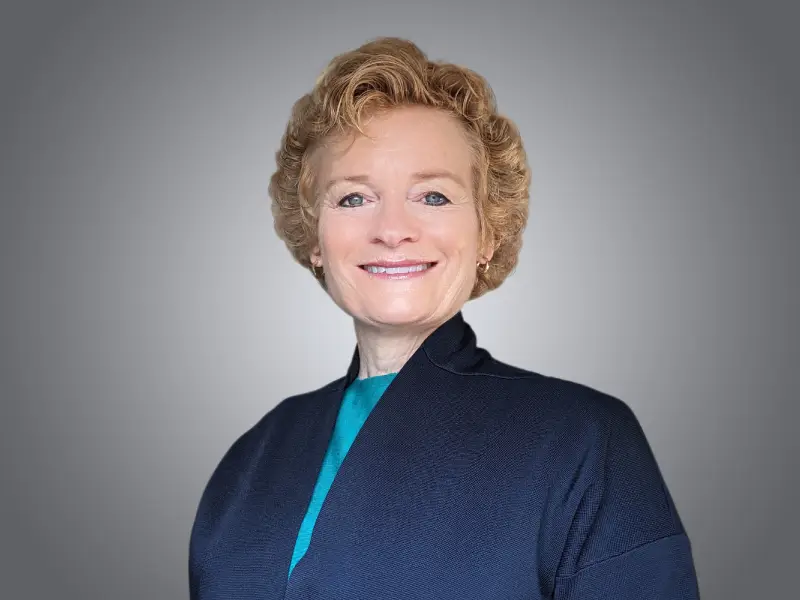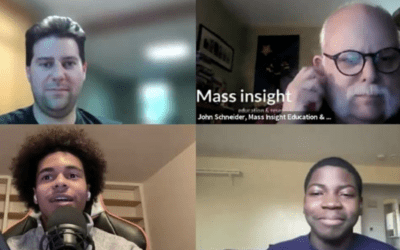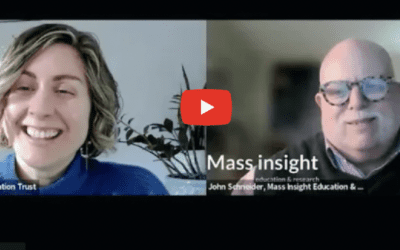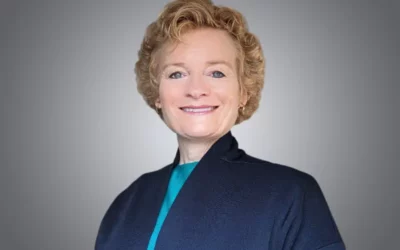The Boulder Fund grant will allow Mass Insight to pilot a new program targeting middle school readiness. May. 22, 2025 –Boston– Mass Insight Education & Research’s President and CEO, Andrea Wolfe, has been selected in the 2025 cohort of Education Leaders of...
Framingham equity audit – a study in intentionality
It’s one thing to develop a good plan for change in a school district. It’s another altogether to see the plan actualized and clearly move the needle.
Among the important ingredients in plans that yield results is what I call intentionality. It’s a level of buy-in, methodical planning, the open recognition that change is difficult, and a sustained deployment of resources that facilitates goals. Without intentionality, the powerful gravitational pull of the status quo — dealing with the normal complexities and chaos of school management – tends to drain the energy out of implementing reform.
I’ve seen a powerful example of intentionality in Framingham Public Schools (MA), where school leaders contracted with Mass Insight to conduct an equity audit. Our key contact has been Joe Corazzini, Assistant Superintendent for Equity, Diversity, and Community Development. As I interviewed Joe last month, he described the deliberate, highly intentional approach in Framingham’s effort to address institutional racism. It has meant engaging the community, teachers and students and committing to a course of action that will bring results. Here are some takeaways from our discussion:
Leadership at the top is essential. Joe was quick to note the support of Framingham Supt. of Schools Robert Tremblay and emphasize how he helped set the tone for change. “The Superintendent really has to feel comfortable in being the example for the district of what
vulnerability is,” Joe said. That vulnerability, the honest recognition of systemic racism and the privilege that has shaped our institutions, sends the message to staff and the community that the district’s drive for equity will not be a meaningless exercise.
Change must also come from shifting the school culture, bottom up. In other words, people, not policies, drive the bulk of change. “We indoctrinate people into our core beliefs, our mission and our values rather than making assumptions that they adopt them when they come in,” Joe said. Framingham has done the hard work of shifting the culture through district-wide training, 32 hours of mandated staff-wide anti-racism professional development.
In the case of inequity and racism, silence is acceptance. Looking the other way when injustice, inequity and racism surfaces sends its own message, as Joe pointed out. Teachers should be trusted and empowered to raise issues – neutrality is “coded language that gives schools permission to step aside and ignore blatant discrimination.”
Change must be layered into broader strategic planning and be backed up with resources. Framingham has embedded the findings of its equity audit into its strategic road map that covers the next three to five years. Achieving equity is an ongoing journey that must be embedded in the district’s daily work. It can’t be a stand-alone initiative. The district is exploring curriculum to make sure it’s inclusive. Framingham also is targeting spending to address a major equity gap: pre-school access (26% of its Kindergarten students arrive without any pre-school experience).
Also important is the need for a utility player, as Joe put in, at a senior level to help propel work forward and offer perspective that might otherwise be missing. I also think of Joe as a quarterback, a leader who has empowered new teammates to face the challenge of educational equity.

Recent Posts
Cybersecurity Event Introduces Students to Cyber Careers
For the 5th year in a row, Mass Insight Education & Research is hosting the Cybersecurity and You Workshop to introduce Advanced Placement® (AP) STEM high school students to cybersecurity scenarios and concepts as well as postsecondary education and career paths....
Adolescent Literacy Crisis: IES Guide In Action – Webinar
What does the evidence say about how schools can improve the adolescent literacy crisis happening in our country? In this webinar, we explore the Institute of Education Sciences Reading Intervention Guide for Grades 4 through 9, found here, and diving into two of the...
You may also like
An Interview with Mass Insight AP Students and their Teacher
https://youtu.be/mQTeW8-sX40 We sat down with two Mass Insight AP STEM & English Program students, Ben and Chris-Ander, and their teacher, William Pellegrino, to hear about their educational journeys, their experiences in AP classes and as vocational students, and...
An Interview with Kristen Hengtgen of The Education Trust
https://youtu.be/1ZfxNShHJOU?si=d1a1GoVrgrDWT5Cu Kristen Hengtgen, Ph.D. is a senior analyst on The Education Trust's P-12 policy team and co-author of their new report, Increasing Access to Advanced Coursework in Massachusetts. In this interview, she joins Mass...
Creating the conditions for greater success of systemically disadvantaged students in AP: Next steps for the Massachusetts AP STEM & English program
Recently the New York Times published an article entitled, Why is the College Board Pushing to Expand Advanced Placement? The article focuses on an important issue: there’s been greater growth in AP participation for Black and Latino students and students living in...



